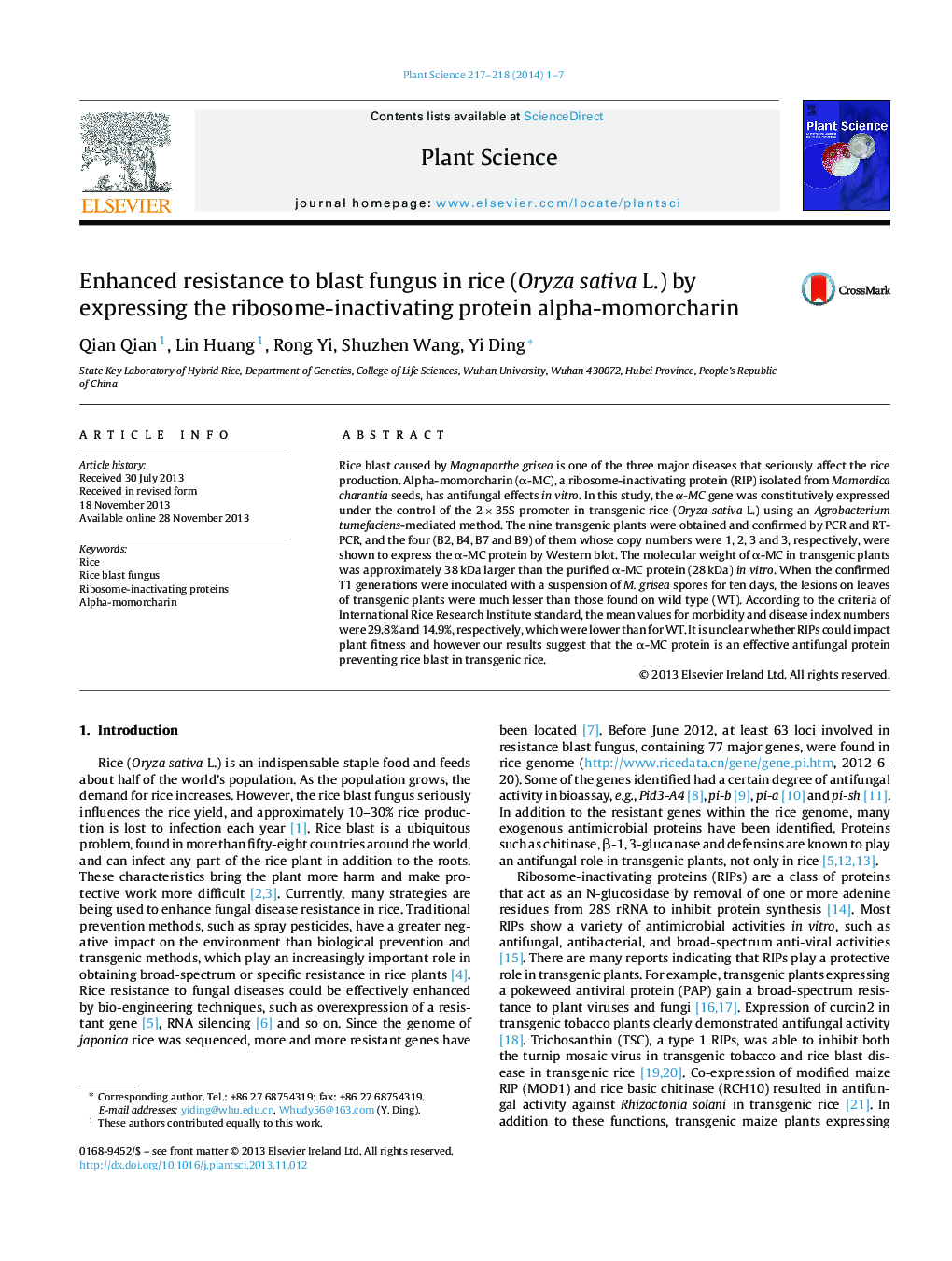| Article ID | Journal | Published Year | Pages | File Type |
|---|---|---|---|---|
| 8358391 | Plant Science | 2014 | 7 Pages |
Abstract
Rice blast caused by Magnaporthe grisea is one of the three major diseases that seriously affect the rice production. Alpha-momorcharin (α-MC), a ribosome-inactivating protein (RIP) isolated from Momordica charantia seeds, has antifungal effects in vitro. In this study, the α-MC gene was constitutively expressed under the control of the 2 Ã 35S promoter in transgenic rice (Oryza sativa L.) using an Agrobacterium tumefaciens-mediated method. The nine transgenic plants were obtained and confirmed by PCR and RT-PCR, and the four (B2, B4, B7 and B9) of them whose copy numbers were 1, 2, 3 and 3, respectively, were shown to express the α-MC protein by Western blot. The molecular weight of α-MC in transgenic plants was approximately 38 kDa larger than the purified α-MC protein (28 kDa) in vitro. When the confirmed T1 generations were inoculated with a suspension of M. grisea spores for ten days, the lesions on leaves of transgenic plants were much lesser than those found on wild type (WT). According to the criteria of International Rice Research Institute standard, the mean values for morbidity and disease index numbers were 29.8% and 14.9%, respectively, which were lower than for WT. It is unclear whether RIPs could impact plant fitness and however our results suggest that the α-MC protein is an effective antifungal protein preventing rice blast in transgenic rice.
Related Topics
Life Sciences
Agricultural and Biological Sciences
Plant Science
Authors
Qian Qian, Lin Huang, Rong Yi, Shuzhen Wang, Yi Ding,
